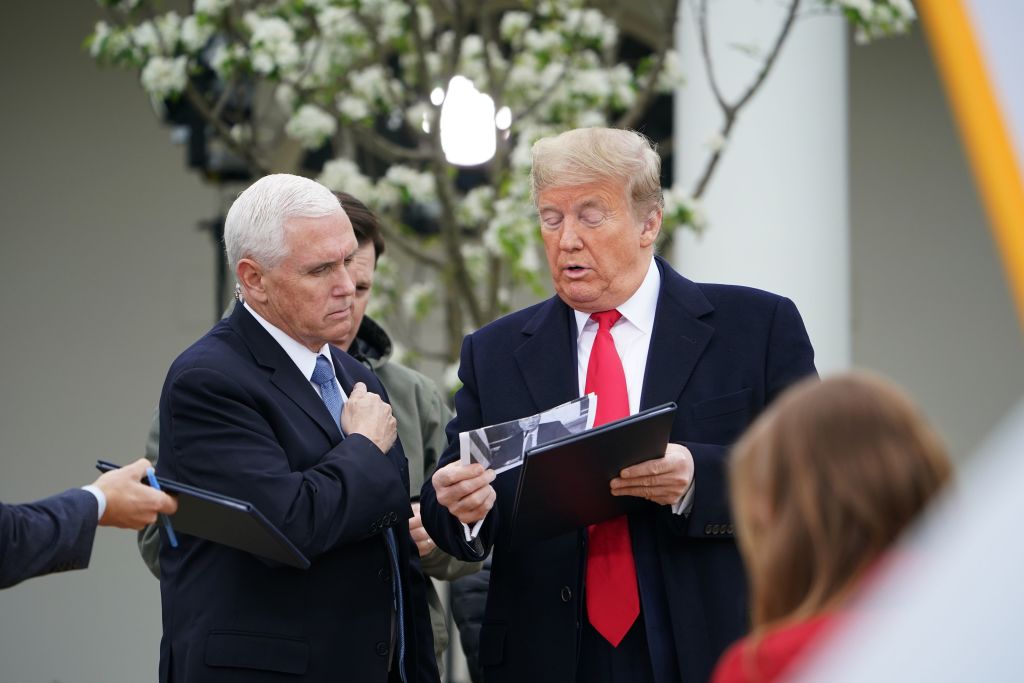Why is Trump promising to quickly reboot an economy he hasn't shut down? 3 theories.


A free daily email with the biggest news stories of the day – and the best features from TheWeek.com
You are now subscribed
Your newsletter sign-up was successful
President Trump said Tuesday he hopes to get the U.S. economy, ravaged by the coronavirus pandemic, "up and just raring to go" by April 12. But "in most cases, it's state leaders — not the federal government — who are responsible for both imposing and lifting the stay-at-home orders and other restrictions intended to stop the contagion," The Associated Press notes. And their bipartisan, near-universal rejection of Trump's timeline "suggests Trump's talk of an early reboot is unlikely to gain traction." So why is Trump overpromising with an improbable Easter economic resurrection? Here, three theories:
1. Trump thinks it's good politics: It's increasingly clear "the gap between Trump's optimism and impatience and the caution and gravity of other figures in the crisis is exactly the point, in political terms," John F. Harris argues at Politico. Trump "is eager to own the only good thing about a crisis that has paralyzed the country and left millions of people in housebound despair: The reality that life will at some point slowly lurch back to normal. He is determined to make other people — specifically, governors, and public health officials — own everything else, including the reality that massive shutdowns will continue long after the Christian holy day on April 12."
2. He's pandering to his base: Trump told Fox News — and presumably his conservative Christian supporters — that he picked Easter Sunday because "you'll have packed churches all over our country, I think it would be a beautiful time."
The Week
Escape your echo chamber. Get the facts behind the news, plus analysis from multiple perspectives.

Sign up for The Week's Free Newsletters
From our morning news briefing to a weekly Good News Newsletter, get the best of The Week delivered directly to your inbox.
From our morning news briefing to a weekly Good News Newsletter, get the best of The Week delivered directly to your inbox.
Not all Christians appreciated the religious-economic conflation.
3. There is no strategy: "Trump has never been known for his patience or long attention span," AP notes. And as the death toll rises and the markets swing wildly, "Trump is grasping for a strategy before the crisis destroys his presidency," Gabriel Sherman reports at Vanity Fair. Some top advisers tell him the pandemic isn't as bad as the media portrays it, and one former West Wing official compared Trump to "an 11-year-old boy waiting for the fairy godmother to bring him a magic pill."
A free daily email with the biggest news stories of the day – and the best features from TheWeek.com
Peter has worked as a news and culture writer and editor at The Week since the site's launch in 2008. He covers politics, world affairs, religion and cultural currents. His journalism career began as a copy editor at a financial newswire and has included editorial positions at The New York Times Magazine, Facts on File, and Oregon State University.
